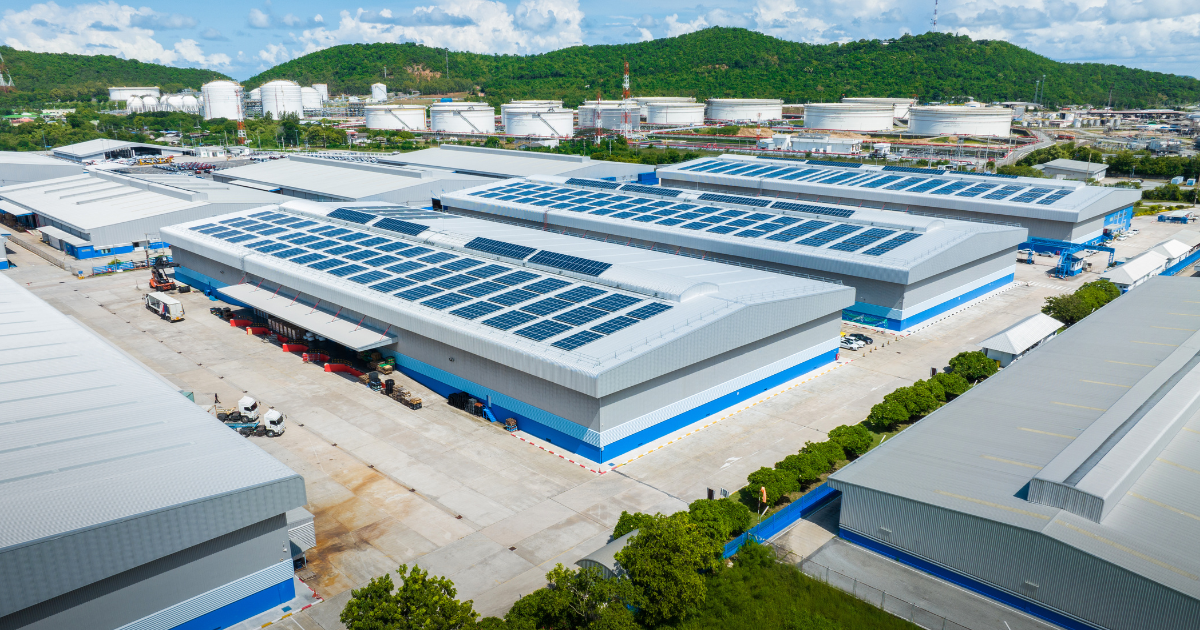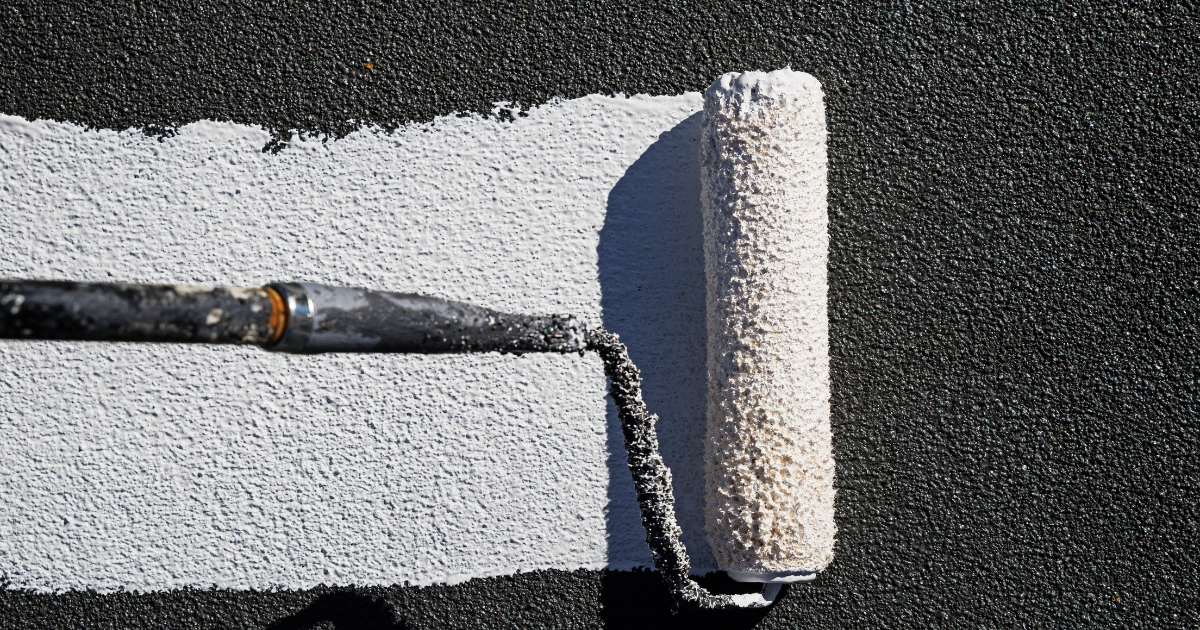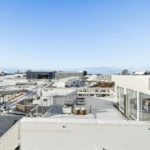
Running a factory or auto plant in Detroit means every part of the building is tied to business performance. That being said, the roof isn’t just a covering – it’s a frontline defense against downtime, product loss, and safety hazards. Yet roofing upgrades often get postponed until the situation turns urgent, forcing rushed decisions and an emergency commercial roof repair.
That hesitation comes from uncertainty: which roofing system is right for heavy industries? Which options deliver durability without disrupting production? And most importantly, who can you trust to install it correctly in a high-demand environment?
This guide will answer all those questions. We’ll walk through the roofing systems proven for manufacturing facility roofing, compare costs and lifespans, and explain how Silicoat Roofing helps Detroit industries keep their facilities secure. Keep reading to explore the strongest factory roof solutions and see how we can protect your facility for decades.
Why Industrial Roofing in Detroit Requires Specialized Solutions
Facility managers know that one roof leak isn’t just a nuisance. It can shut down a line, halt production, and jeopardize equipment worth millions. That being said, we’re not just talking about covering square footage, but about engineering a system tough enough to withstand one of the harshest industrial environments in the country.
Between brutal freeze-thaw winters, heavy rooftop machinery, and exposure to chemicals common in auto plants and factories, Detroit facilities face challenges that standard commercial roofs simply aren’t built to handle. That’s why facility managers need specialized solutions designed with durability, safety, and long-term performance in mind.
Weather: Freeze-Thaw Cycles and Lake Effect Snow
Detroit winters push roofing systems to the limit. Snow accumulates, melts, refreezes, and expands inside micro-cracks. Over time, this cycle splits membranes, weakens seams, and invites leaks. On top of that, flat industrial roofs are especially vulnerable because water often pools instead of draining. That is why a proactive plan for seasonal roof preparation for your commercial building matters; addressing drainage, seals, and insulation before the first hard freeze reduces risk and preserves performance.
Loads: Heavy Machinery, HVAC, and Rooftop Equipment
Unlike office complexes, manufacturing facilities place unique loads on their roofs. Auto plants often feature giant air handlers, stacks, and heavy rooftop machinery. These not only stress the roof structure but also cause vibration, which can break down adhesives and sealants.
A roof must be more than waterproof – it must be engineered for vibration resistance and long-term structural support. That’s why industrial clients need roofing partners who understand load calculations and reinforcement.
Exposure: Chemicals, Oils, and Industrial Byproducts
In auto plants, airborne chemicals like oil mists, exhaust particulates, and solvents often settle on rooftops. Over time, these substances can degrade membranes that weren’t designed to withstand them. PVC roofing systems, for example, excel here because of their resistance to chemicals.
If a facility installs the wrong roofing material, premature failure isn’t a possibility – it’s a certainty. That’s why Silicoat Roofing designs factory roof solutions around each client’s specific exposure risks.
Recognizing these challenges sets the stage for understanding which roofing systems can handle Detroit’s industrial environment. Let’s explore the top contenders.
Best Roofing Options for Manufacturing Facility Roofing
Here’s the truth: no single material fits every Detroit plant or factory. Auto plants need chemical resistance, warehouses demand energy savings, and older factories may require reinforcement against heavy foot traffic. The right system balances durability, cost, and performance under the unique pressures of industrial operations. Below, we break down the most reliable commercial roofing for auto plants and manufacturing facilities, along with the advantages and trade-offs facility managers should weigh before making a decision.
Single-Ply Roofing Systems
Single-ply membranes dominate modern commercial roofing because they balance cost, performance, and speed of installation. For Detroit’s industrial facilities, three systems stand out:
TPO (Thermoplastic Polyolefin)
- Strengths: Highly reflective, reducing cooling loads in large facilities. Lightweight and cost-effective, it highlights the advantages of reflective roof coatings for commercial buildings.
- Challenges: Chemical resistance is limited, so it may need protective coatings in auto plant environments.
- Best Fit: Facilities prioritizing energy savings where chemical exposure is minimal.
EPDM (Ethylene Propylene Diene Monomer)
- Strengths: Exceptional flexibility, even in sub-zero Detroit winters. Proven 30+ year performance.
- Challenges: Seams must be sealed with adhesives, making installation quality critical.
- Best Fit: Large-span flat roofs requiring proven durability in freeze-thaw conditions.
PVC (Polyvinyl Chloride)
- Strengths: Excellent chemical resistance, ideal for auto plants with oil vapors and solvents. Welded seams create watertight seals.
- Challenges: Higher upfront costs compared to TPO or EPDM.
- Best Fit: Automotive and manufacturing plants where chemical resistance is non-negotiable.
Built-Up Roofing (BUR) and Modified Bitumen
For decades, Detroit factories relied on these materials because of their durability, as multiple layers of asphalt and reinforcing fabrics create a rugged system.
- Strengths: Highly resistant to punctures and heavy foot traffic.
- Challenges: Heavy systems that require reinforced structures. Longer installation times.
- Best Fit: Older industrial buildings that need robust, traditional solutions with proven track records.
Silicone Roof Coatings
These are one of the fastest-growing solutions in Detroit’s industrial market. Instead of tearing off an old roof, coatings create a seamless, watertight membrane that extends roof life by 10-20 years.
- Strengths: Resistant to ponding water, reflects heat, and minimizes downtime.
- Challenges: Requires a stable existing substrate.
- Best Fit: Facilities where production cannot pause and roof replacements are too disruptive.
“For Detroit’s auto plants, downtime isn’t an option. Our silicone coatings let facility managers upgrade performance while production continues – no need to shut the doors.” – Rick Dodaj, founder of Silicoat Roofing.
With materials covered, the next step is comparing how these systems perform across cost, durability, and lifecycle savings.
Comparing Commercial Roofing for Auto Plants
But how should industrial roofing Detroit facilities size up their options? Start by comparing the core systems used in commercial roofing for auto plants and manufacturing sites, focusing on strengths, limitations, and ideal applications. If your place faces chemical exposure, heavy rooftop traffic, or frequent freeze-thaw cycles, the table below pairs conditions with solutions so you can choose roof solutions that hold up under pressure.

Before you commit to a system, frame the decision around your facility’s realities. List the conditions on your roof today, then consider chemical exposure, rooftop traffic, ponding risk, energy goals, and acceptable downtime.
Balancing Cost and Durability in Detroit Factory Roof Solutions
Choosing the right industrial roofing system in Detroit isn’t only about performance – it’s about finding the balance between upfront investment and long-term value. Facility managers often face pressure to cut costs, but the cheapest option can quickly become the most expensive once emergency repairs, production downtime, or premature replacements are factored in. By comparing initial pricing, expected lifespan, and roof maintenance needs, decision-makers can identify solutions that deliver both durability and financial stability over decades.
Short-Term vs Long-Term ROI
For facilities without significant chemical exposure, TPO often delivers the lowest upfront cost along with energy savings, making it a practical starting point. In auto plants or environments with oils and solvents, PVC’s higher initial price is offset by its chemical resistance, which helps prevent premature failure and unplanned downtime. Finally, when the existing roof is structurally sound, silicone coatings offer a balanced path: a mid-range investment that avoids tear-off, limits disruption to operations, and extends service life immediately.
Energy Efficiency and Utility Savings
Cool roofs are designed to reflect more sunlight and absorb less heat than conventional roofs, which lowers roof and building temperatures and reduces cooling load. For Detroit’s mixed climate, teams should evaluate the net effect across seasons, but the summer cooling benefits are clear for large facilities.
Maintenance and Inspection Planning
A Detroit manufacturing facility roof isn’t “set it and forget it.” Proactive inspections every spring and fall are essential. Silicoat Roofingintegrates inspection plans into contracts so facility managers can predict costs instead of scrambling after failures.
Now that cost factors are clear, let’s discuss why contractor expertise determines whether these systems succeed or fail.
Why Silicoat Roofing is Detroit’s Go-To Industrial Roofing Partner
In a city where auto plants and factories drive the economy, industrial roofing isn’t a job for general contractors. It demands a partner who understands the state’s unique mix of weather extremes, heavy machinery, and chemical exposure. Silicoat Roofing has built its reputation by delivering Detroit factory roof solutions that address these pressures head-on. With proven industry experience, a focus on compliance, and installation methods that minimize downtime, we give facility managers confidence that their roofs will perform when it matters most.
Industry Experience with Automotive and Heavy Manufacturing
Silicoat Roofing has partnered with Detroit’s auto industry for years. From stamping plants to parts warehouses, we understand how vibration, load, and exposure impact roofing performance.
Safety, Compliance, and OSHA Standards
Industrial projects involve more than construction – they involve compliance. Silicoat Roofing ensures every project meets OSHA regulations, minimizing liability for facility owners.
Minimizing Downtime with Smart Scheduling
We also use phased installation and coating systems to keep production moving. Our projects are scheduled around plant activity to avoid costly shutdowns.
“We treat every industrial client as a long-term partner. Our role isn’t just installing roofs – it’s keeping Detroit’s factories running safely and efficiently.” – Rick Dodaj, Founder of Silicoat Roofing.

Common Questions About Industrial Roofing
How long should a Detroit factory roof last?
With proper materials and maintenance, 20-30 years is typical. Silicone coatings can extend life another 20 + years.
Do coatings really work in Michigan winters?
Yes. Silicone maintains flexibility in extreme cold, preventing cracks during freeze-thaw cycles.
Can roofing projects be done without halting production?
Yes. Many upgrades, especially coatings, are completed in phases with little to no disruption.
What’s the biggest mistake facilities make?
Delaying maintenance until leaks appear. Preventive action is always less costly than emergency repairs.
Building Confidence in Detroit Factory Roof Solutions
For Detroit’s automotive and manufacturing leaders, roofing isn’t just overhead – it’s a critical investment in business continuity. Harsh weather, heavy machinery, and chemical exposure demand specialized solutions.
Silicoat Roofing has earned its reputation as Detroit’s partner for industrial roofing by combining proven materials, industry expertise, and a commitment to minimizing downtime.
Ready to secure your facility with durable roofing for heavy industry? Contact us today and see why Detroit facility managers rely on us for their most critical projects.
About the Author
Rick Dodaj is the founder and CEO of Silicoat Roofing, specializing in commercial roofing solutions that protect businesses and their investments. With extensive experience in commercial roofing, Rick leads a team dedicated to providing cost-effective, long-lasting roofing solutions. Connect with him on LinkedIn to learn more about commercial roof maintenance and protection strategies.


 Previous Post
Previous Post Next Post
Next Post